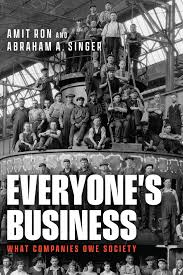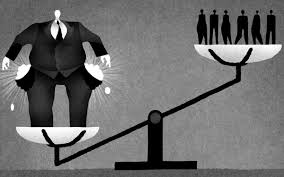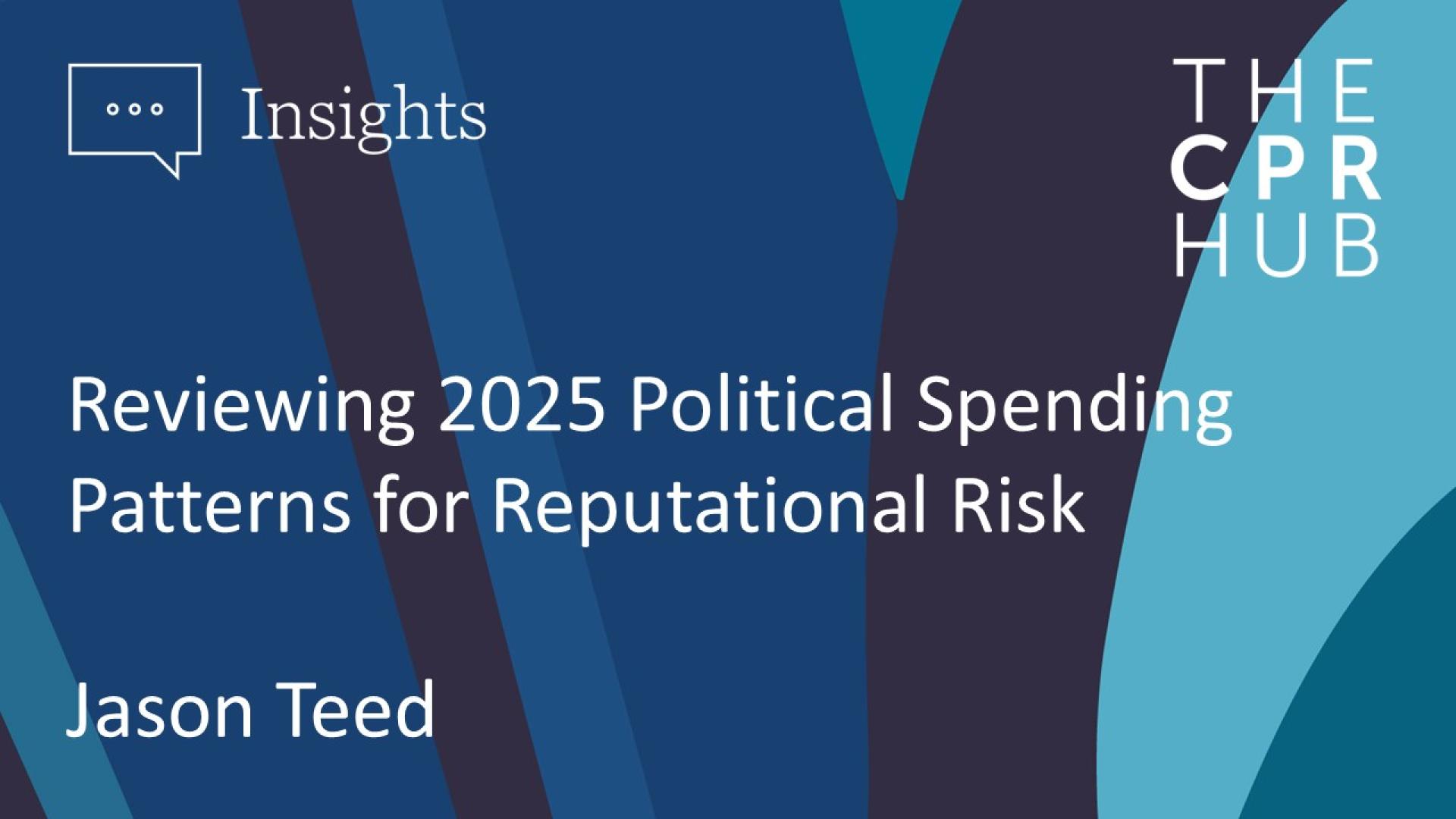Even when primarily engaged in the pursuit of profit, business executives often wield significant social and political power. What does it look like for them to wield this power responsibly? A simple and attractive answer is this: we must teach business executives that greed and profit are not the only things that matter, and that they have a responsibility to use the power they possess to pursue good things and to fight against bad things!
For example, given the severity of the climate crisis, shouldn’t we expect business leaders to go out of their way to conduct business in an environmentally responsible manner? An executive of a company might take it as their corporate responsibility to use their influence and power to fight climate change in various ways. This might involve some straightforward things over which the company has discretion, for instance, voluntarily working to reduce their emissions, or using more sustainable packaging and transportation, even if it comes at the short-term expense of profits or share value.
But, our good-doing executive might go further and use their influence to get others to do things differently: this might involve using their financial heft to lobby regulators or legislators for stiffer emissions controls, funding research and publicity campaigns surrounding the importance of climate change, and supporting social movements engaged in climate activism. At the extreme, a particularly committed and zealous business leader might think that climate change is so pressing, so urgent, that they should not be bound by legal concerns: perhaps they bribe officials to pass such regulations on the theory that preventing the catastrophic ends justifies the illegal means. Given the urgency of swift action to reverse climate change, wouldn’t all these actions be commendable?

In our new book, Everyone’s Business, we argue that businesses and those who lead them ought to be skeptical about using their power in these ways and that citizens ought to be suspicious when business executives do so. The reason for this skepticism is concern for democracy: democratic commitments should make us anxious about powerful corporate entities being too influential in affecting matters of public concern. While its demands are hotly contested, democracy generally entails the empowerment of people, enabling them to influence matters of public concern as equal citizens, irrespective of wealth or social standing.
To the extent we value democracy, we must be concerned about social structures where elites –whether authoritarian leaders, privileged aristocrats, or rich oligarchs –have disproportionate influence over how the rest of us do things. Thus, to our well-meaning businesspeople, looking to use their perch to pursue climate change policies, we ask: Why do you get to decide? What makes you so confident in your abilities to do the right thing, and why should we trust you?
Our book argues that when it comes to the corporate power to influence social practices and public policies, the paramount obligation of business is to concern itself with the democratic process. Democracy requires that, when trying to figure out what counts as good or bad in matters of social or public concern, we do so in ways that respect the democratic mandate of empowered inclusion on equal terms. Businesses thus have obligations to be mindful about how their actions might exclude, disempower, or render unequal those who are entitled to have a say. Even when nobly motivated (which, we humbly suggest, is not always the norm in the C suite), businesses can undermine democratic governance when they pursue their particular view of what is right or good for society.
To illustrate, let us return to the case of climate change mitigation. We certainly agree that climate change is a pressing social issue that requires urgent attention. However, we must also recognize that there are significant disagreements about how best to address it. Should we be trying to institute a cap-and-trade regime for carbon or a carbon tax? How should we balance our concerns regarding climate change with those of economic growth or poverty reduction? Should we be endorsing a de-growth model or allowing greater emissions now on the theory that mitigation will be less costly in a richer future?
Our admirable corporate executive, when looking to fight climate change through lobbying, social influence, or even bribery, inevitably does so on behalf of some particular way of understanding the problem and how to solve it. Consequently, they unduly and undemocratically skew public policy in favor of their particular approach, simply and solely because they happen to have the resources and standing to pursue it.
None of this means businesses can or should stay out of politics entirely. Most importantly, this is not even possible: businesses inevitably affect politics when they decide where to locate headquarters, which sectors to invest in, or the types of marketing strategies they pursue; indeed, even their silence on issues can be taken as tacit endorsement of the status quo. There is no non-political place to which businesses can retreat or where a democratic public might quarantine them. Instead, businesses are obliged to be mindful of the influence they have and attempt to wield it in ways that don’t foreclose democratic accountability, particularly by being as transparent and public with their decisions and rationales as possible, and by allowing them to be scrutinized and contested by others.
In our book, we offer a framework for thinking about the ethical expectations of businesses vis-a-vis democracy.
As we explain, these expectations demand different things in relation to different sorts of corporate decisions. As participants in a market economy, businesses rightly enjoy some discretion when it comes to operational and strategy decisions, and so they are free to voluntarily reduce their emissions or pursue sustainability as they desire.
However, once businesses start explicitly using their influence to alter the way others operate –both within the state and in society more generally – we have  reason to worry that their methods undermine demo cratic commitments.
reason to worry that their methods undermine demo cratic commitments.
Some strategies will be within bounds: If they make pub lic the ways in which they reduced their emissions, and the ways in which they were able to square this with other business concerns they have, this is a strategy of influencing others that is more consistent with demo cratic empowerment since it is done in a way that allows others to assess and scrutinize these decisions. Other strategies will be on the borderline.
Funding a study or pursuing a publicity campaign on the harms of climate change can be compatible with democratic processes, but if the funding is done in ways that undercut scientific integrity (by biasing the researchers), the design of the study aims to create more doubt rather than to resolve it, or the campaign is conducted in ways that obscure the company’s involvement (e.g., through “astroturfing” strategies), they disable democracy’s capacity for scrutiny and assessment.
Similarly, while a business might lobby governments in democratic ways – by bringing its expertise to bear on technical policy questions in a transparent manner – it can also lobby in ways that corrupt democracy, for instance by being opaque with the nature of its claims or covering the tracks of its influence and involvement. Illegal tactics, on the other hand, are generally out of bounds for businesses even when they are done with noble goals, as they inevitably put businesses above the law and thus on unequal footing with other citizens.
At a more general level, we argue that taking democracy seriously requires that the business world re-orient its thinking around what it means to act ethically or responsibly. What the above discussion of climate change helps illustrate is that businesses can be well-meaning and nobly motivated, and still do harm. Indeed, business leaders may be motivated to take extra-ordinary actions to reduce carbon emissions precisely because of how their business or industry has acted in the past: if my business or profession has contributed to the climate crisis, and misused its influence to undermine the democratic process from correcting it, don’t I owe a debt that demands bold action?
We think businesses do owe society many things, but what counts as repaying that obligation cannot be determined unilaterally by the debtor. Instead of viewing themselves as powerful actors with the responsibility to pursue what they think is good, business leaders ought to regard the power they wield as potentially dangerous in itself. It therefore comes with a responsibility to avoid corrupting the democratic processes we employ to determine what is good for all. However imperfect these processes are, they allow society to engage in reflective experimentation and to revise these processes to achieve results that we, together, deem desirable.






Comments
Comment on this Insight